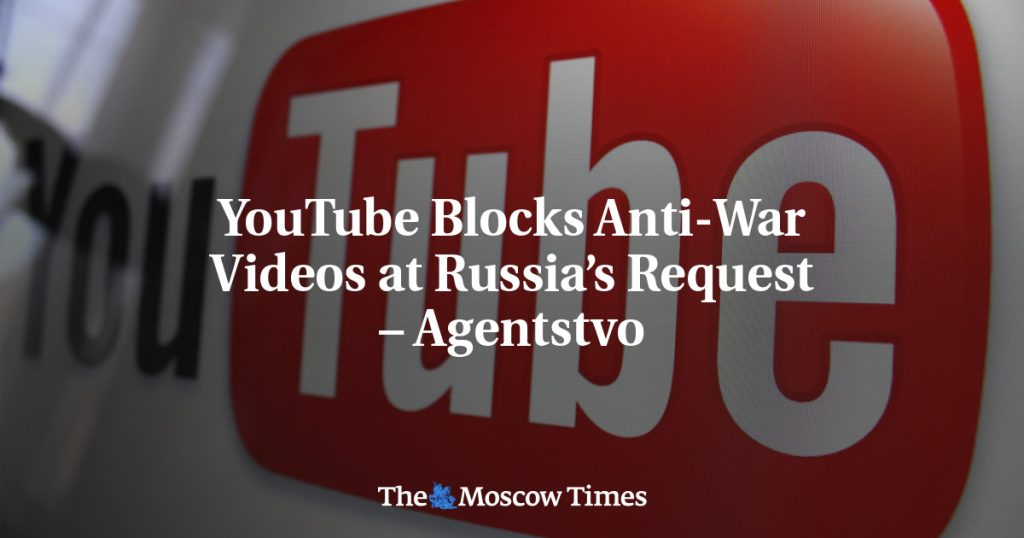YouTube has blocked three videos that show viewers how to evade military service in response to a request from the Russian authorities. Russia’s state media watchdog, Roskomnadzor, notified YouTube that the videos violated Russia’s laws. Additionally, Roskomnadzor has notified the human rights watchdog OVD-Info that one of its YouTube channels may be blocked after a complaint was received. The channel “Kak Teper?” has been restricted, and Roskomnadzor stated that access could be restored if unspecified violations were eliminated.
This move by the Russian government represents a new trend in removing content related to human rights without violating Google’s content policies. OVD-Info, the human rights watchdog, is working to appeal the decision to block their channel, citing politically motivated censorship as the reason behind the demand. The demand to block the channel in its entirety rather than specific videos is a first for Russia, according to OVD-Info spokesman Dmitry Anisimov.
The deletion of channels belonging to pro-Kremlin media organizations by YouTube has sparked accusations of censorship from the Kremlin. Despite this, Russia has not yet banned YouTube as it has done with other platforms like Facebook, X, and Instagram, as well as independent media outlets. Russia had previously threatened to punish Western tech companies if they did not delete banned content, such as posts supporting the late opposition figure Alexei Navalny, before invading Ukraine in 2022.
The blocking of content related to military service evasion by YouTube at the request of Russian authorities is part of a broader trend of censorship in the country. This move represents an attempt by the Russian government to control the flow of information and suppress dissenting voices. The decision to restrict OVD-Info’s YouTube channel is seen as a form of politically motivated censorship and has sparked criticism from human rights advocates. It remains to be seen how Google will respond to the demand to block the channel and whether they will comply with Russian authorities’ requests.
The situation highlights the challenges that tech companies face when operating in countries with strict censorship laws. YouTube has previously faced pressure from various governments to remove content deemed unacceptable, and this latest move by the Russian authorities is part of a wider crackdown on free speech and dissent. Human rights organizations are concerned about the implications of this trend and are calling on Google to resist politically motivated censorship and protect freedom of expression. The outcome of this situation will have broader implications for how tech companies navigate the complex landscape of global censorship and government interference.


